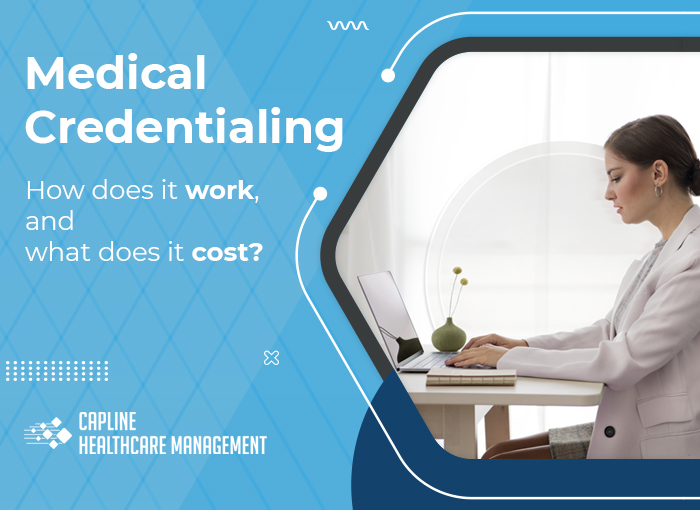Medical credentialing: How does it work, and what does it cost?
Medical insurance credentialing service is pretty complex, and it is a bit natural to have many questions about it. However, considering the significance of the process, it is crucial for everyone concerned to know more about it.
The credentialing process ensures that the medical industry maintains high-quality standards. Verifying a healthcare provider’s competency regarding educational qualifications, job history, certifications, and other factors is frequently part of the procedure.
How does the process of credentialing work?
A credentialing authority will call the physician’s university, certification board, and licensing agency to determine whether a provider can provide healthcare. Credentialing is deemed necessary for all types of practitioners who give medical aid to patients.
The process is repeatedly carried forward to ensure that a healthcare organization or provider adheres to regulatory standards and policies established by organizations such as the Centers for Medicare and Medicaid Services, The Joint Commission, the National Committee for Quality Assurance, and others.
What are the benefits of medical credentialing?
Medical credentialing offers numerous advantages to all stakeholders engaged in the process. Credentialing ensures that the staff engaged by hospitals and clinics are qualified enough to provide services that meet high standards. In addition, insurance companies also save money by ensuring that only qualified medical practitioners pass the credentialing procedure.
Credentialing also benefits practitioners since it allows them to reach out to more patients who have different types of health insurance. Patients, too, get the maximum benefit out of this process. They gain the confidence that they will receive the best possible care from the most qualified professionals.
Reasons why Credentialing should be a top priority
Builds trust and confidence
Credentialing improves the trustworthiness of the healthcare delivery system. Patients become confident about the outcome and cooperate. Some insurance companies are known for their stringent credentialing requirements. Therefore, patients can trust any healthcare provider enrolled with these insurance companies.
It is up to insurance companies to maintain the best and reject the rest in a world of healthcare fraud, inexperienced doctors, and medical facilities delivering incorrect diagnoses.
Patients demand that their insurance companies have robust vetting procedures to enroll only the best healthcare providers, nursing homes, clinics, and hospitals. As a result, they trust enrolled medical practitioners and rely on the insurance company’s systems.
Physicians can cater to patients covered by such insurance companies, broadening their scope of services and activities. The best solution is to get credentialed with these insurance firms. However, there may be times when re-credentialing is required.
Doing a lot of paperwork is also inconvenient. In these situations, getting on board with a reputed medical credentialing company has numerous advantages.
Plugs revenue leakage
Credentialing promptly and ahead of time allows continuity of services and does not disrupt services to patients. Thus, there is no loss of opportunity and revenue. In addition, medical offices must have a partnership with insurance carriers.
Insurance companies may require periodic records of verifications from healthcare professionals to keep the partnership active. The verification list required by these insurance companies can change from time to time, and practitioners may need to furnish different documentation sets per requirements.
A failure to provide adequate documentation signals a lack of organization in the medical office. Unfortunately, insurance companies may not have tolerance thresholds for such a lack of compliance. As a result, they may reject the medical practitioner’s office application outright.
Failure to provide credentialing information could result in the insurance company withholding the funds to be disbursed to the medical office, leading to revenue loss.
Can the provider work while the process is not yet completed?
A healthcare provider should stop providing services until the entire credentialing procedure is completed. It ensures that all patients receive high-quality treatment from providers who have been verified as qualified to provide their services. In addition, allowing non-credentialed persons to work for a healthcare company exposes the organization to undue risk.
There are some scanty exceptions to the norm, though. Medical students, for example, do not require certification as long as their responsibilities do not exceed the area of their studies. In addition, they usually do not require accreditation because they work under the close supervision of superior credentialed professionals.
What does medical credentialing cost?
Medical credentialing fees differ from one CVO, organization to organization, and specialty to specialty. You may anticipate paying between $300 and $400 for your application fee alone.
After your credentialing process is finished successfully, you can expect partial refunds. You’ll also have to pay for periodic re-credentialing. However, you can expect to pay a lower price for this.
Why choose the best medical credentialing company?
When looking for medical insurance credentialing services, experience and a strong reputation are undoubtedly two essential elements to consider.
Your choice of credentialing service may also be influenced by the hospital or clinic to which you apply. If you are a representative of a healthcare facility or a provider with the choice to select, the same rules apply here as they do everywhere.
Look for someone with experience and an excellent track record. Some services are at the forefront of their fields, while others fall behind.
Capline Healthcare Management is one of the leading medical credentialing companies in the United States, with the resources, skills, and experience to handle the whole credentialing and re-credentialing process from beginning to end in a timely, efficient, and painless manner.



